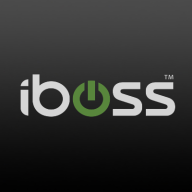


CloudLock and Cisco Umbrella are key competitors in the cloud security arena. Cisco Umbrella has the upper hand with its comprehensive feature set and threat intelligence, making it preferable despite a higher cost.
Features: CloudLock is designed for data loss prevention with advanced discovery and classification of sensitive data. It enhances data-centric security across platforms and simplifies compliance measures. Cisco Umbrella delivers extensive threat intelligence with DNS-layer protection, secure web gateway capabilities, and real-time visibility, ensuring robust threat prevention and monitoring.
Room for Improvement: CloudLock could enhance its threat monitoring capabilities to complement its data governance strengths. Improving integration with more platforms could broaden its use cases, and streamlining user interface complexities would benefit administrators. Cisco Umbrella may need to refine its pricing structure to be more accessible for all business sizes. Enhancing its customer support experience would boost user satisfaction, and expanding reporting features would aid detailed threat analysis.
Ease of Deployment and Customer Service: CloudLock is known for easy deployment, requiring minimal configuration, while Cisco Umbrella offers agile implementation with automatic updates and seamless network integration. Cisco Umbrella's customer service is often praised for its expertise and responsiveness, though CloudLock's support is recognized for being approachable and user-friendly.
Pricing and ROI: CloudLock offers cost-effective options appealing to enterprises focused on data compliance, promoting solid ROI through efficient data governance. Cisco Umbrella, despite higher pricing, justifies investment with excellent ROI derived from comprehensive security and scalable options. Customers appreciate Cisco Umbrella’s broad protection, viewing it worth the cost despite its robust pricing model.


iboss offers a comprehensive security platform designed for diverse use cases such as web filtering, data loss protection, corporate proxy services, and URL filtering.
iboss integrates advanced features to address dynamic security needs, leveraging its strength in SASE, ZTNA, AI initiatives, and cloud integration, while ensuring seamless operations for remote work. It excels in historical forensics, malware protection, and flexible cloud deployments. Users benefit from comprehensive traffic scanning, robust malware detection, and PaaS capabilities that reduce hardware management. An intuitive admin console ensures efficient management with content filtering and low false positives. SSL decryption enhances security, while DLP protects data in AI conversations. Deployment is rapid and scalable, allowing effortless integration with emerging technologies.
What features does iboss offer?
What benefits and ROI should users consider?
iboss finds significant application in sectors such as education, where web filtering for K-12 is crucial, and in corporate environments requiring robust proxy services and URL filtering for network security. Its adaptability is essential in scenarios demanding flexible, decentralized security frameworks, particularly for remote work setups.
Cisco Umbrella delivers rapid DNS security with over 30,000 customers, providing outstanding threat protection and handling more than 600 billion requests daily. It's recognized for high threat efficacy in the SSE domain and integrates elements like SWG, ZTNA, CASB, and more.
Cisco Umbrella is renowned for its effective DNS-layer security against ransomware and phishing. It offers flexible content filtering and integrates seamlessly with existing networks while providing single-pane-of-glass management for centralized monitoring. Its robust threat intelligence and customizable policies are central to its appeal. Users highlight room for improvement in areas like WHOIS data inclusion, malware enhancement, and reporting analytics. Integration with other threat feeds and better client support are requested for more comprehensive coverage.
What are the key features of Cisco Umbrella?Industries implement Cisco Umbrella primarily for DNS-level security, web filtering, and protecting remote employees. It strengthens cybersecurity frameworks by blocking malware and avoiding access to harmful sites. The tool is widely integrated with Active Directory and Cisco Meraki, providing consistent internet security for employees.
CloudLock is a cloud security platform that provides organizations with visibility, data security, and compliance solutions for cloud-based applications and services. It focuses on securing data in popular cloud platforms, such as Google Workspace (formerly G Suite) and Salesforce.
CloudLock Benefits:
CloudLock Features:
CloudLock helps organizations enforce data loss prevention policies in the cloud. It monitors and controls the sharing, storage, and usage of sensitive data within cloud applications, preventing unauthorized access and data leakage.
The platform incorporates threat intelligence capabilities to detect and respond to cloud-based threats. It leverages machine learning algorithms and behavioral analytics to identify suspicious activities, malware, account compromises, and other security risks.
CloudLock enables organizations to enforce granular access controls for cloud applications. It allows administrators to manage user permissions, apply multi-factor authentication (MFA), and monitor user behavior to detect anomalies and potential insider threats.
CloudLock assists organizations in meeting compliance requirements by monitoring cloud applications for data privacy regulations and industry standards. It provides detailed reporting and auditing functionalities to demonstrate adherence to regulatory frameworks.
The platform helps organizations discover and gain visibility into unauthorized or risky cloud applications used within their network. It allows IT teams to assess risks, enforce policies, and take appropriate actions to manage and control cloud usage effectively.
We monitor all Cloud Access Security Brokers (CASB) reviews to prevent fraudulent reviews and keep review quality high. We do not post reviews by company employees or direct competitors. We validate each review for authenticity via cross-reference with LinkedIn, and personal follow-up with the reviewer when necessary.